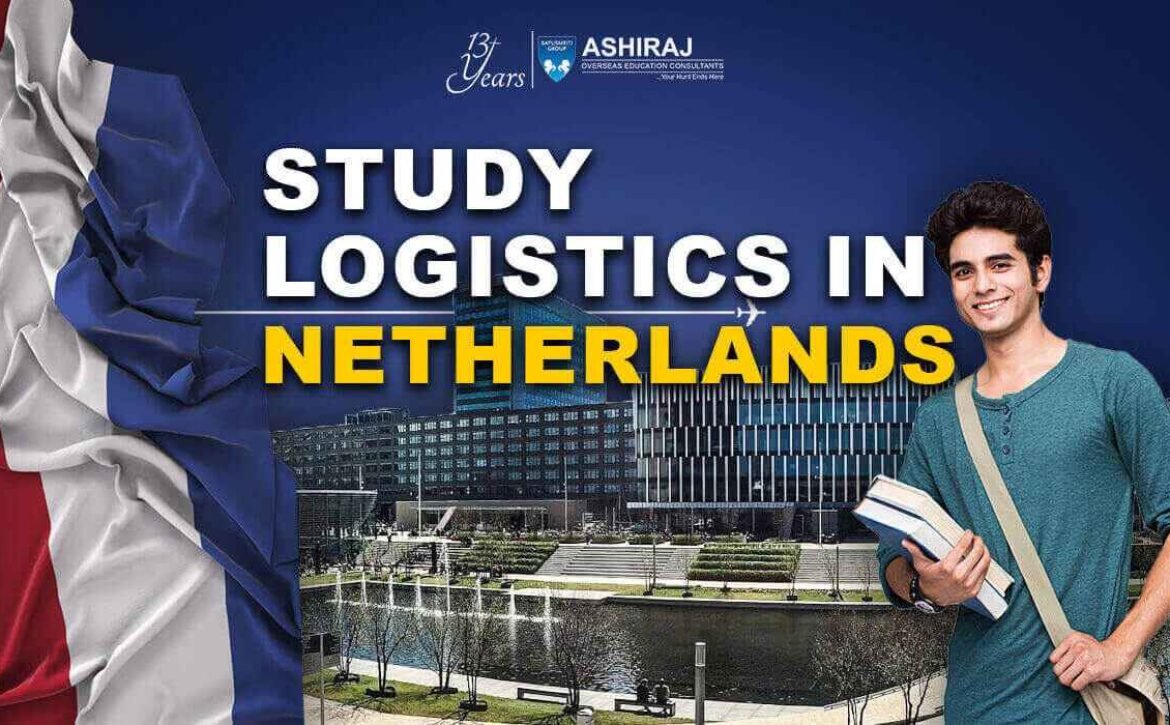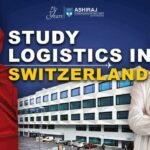
Logistics in Netherland
Logistics in the Netherlands plays a pivotal role in the country’s thriving economy, seamlessly connecting industries and facilitating global trade. The strategic location of the Netherlands, with its extensive network of ports, efficient transportation infrastructure, and advanced logistics services, positions it as a key player in the European logistics landscape. Logistics in the Netherlands encompasses a wide range of activities, including transportation, warehousing, and distribution, all geared towards optimizing supply chain efficiency.
The Netherlands’ commitment to innovation is reflected in its logistics sector, where cutting-edge technologies are embraced to enhance operations. the country’s logistics landscape is dynamic and well-equipped to meet the demands of the modern global market. As businesses continue to leverage the Netherlands’ logistical strengths, the country remains at the forefront of shaping the future of efficient and sustainable supply chain management.
Why Study Logistics in the Netherlands?
- Global Hub for Logistics: The Netherlands stands as a logistics powerhouse, strategically located as a gateway to Europe. Studying logistics here provides unparalleled exposure to a dynamic industry at the forefront of global trade.
- Cutting-edge Technology Integration: Logistics in the Netherlands embraces innovation. Students have the opportunity to learn and apply the latest technologies, from smart transportation systems to state-of-the-art warehousing solutions, ensuring they stay ahead in a tech-driven world.
- Robust Educational Infrastructure: The country boasts world-class universities offering specialized logistics programs. These institutions provide a comprehensive understanding of logistics principles, supply chain management, and the practical skills needed for success in the field.
- Industry Connections and Internships: With a dense network of logistics companies, students studying logistics in the Netherlands can easily connect with industry professionals. Internship opportunities abound, allowing for hands-on experience and the chance to build a valuable professional network.
- Multicultural Learning Environment: The Netherlands is renowned for its multicultural atmosphere. Studying logistics here means exposure to diverse perspectives, preparing students for global collaborations in the logistics sector.
In conclusion, choosing to study logistics in the Netherlands opens doors to a world of opportunities. The country’s strategic position, technological advancements, educational excellence, industry ties, and multicultural environment collectively make it an ideal destination for aspiring logistics professionals. students can be confident that their educational journey aligns with a thriving and innovative logistics landscape.
Top Universities to Study Logistics in Netherlands
University | QS World University Ranking 2023 | Type of University | Average Annual Fees | Programs Offered |
University of Amsterdam | 58 | Public | €12,000 – €15,000 | Logistics and Supply Chain Management |
Erasmus University Rotterdam | 70 | Public | €13,000 – €16,000 | MSc in Supply Chain Management |
Delft University of Technology | 151 | Public | €14,000 – €17,000 | Transport, Infrastructure, and Logistics |
University of Groningen | 123 | Public | €12,000 – €14,000 | MSc in Global Supply Chain Management |
Tilburg University | 195 | Public | €11,000 – €13,000 | MSc in Supply Chain Management and Logistics |
Studying logistics in the Netherlands offers a plethora of choices, with the country being home to some of the top-ranked universities globally. The University of Amsterdam, ranked 58th in the QS World University Rankings 2023, provides programs in Logistics and Supply Chain Management. Standing at 70th place, Erasmus University Rotterdam offers an MSc in Supply Chain Management. Delft University of Technology, ranked 151, specializes in Transport, Infrastructure, and Logistics. The University of Groningen, positioned at 123, provides an MSc in Global Supply Chain Management. Tilburg University, securing the 195th spot, offers an MSc in Supply Chain Management and Logistics. these universities not only impart quality education but also contribute to the country’s reputation as a global hub for logistics education and research.
Course Curriculum for Logistics in Netherlands
- Comprehensive Core Modules: Logistics courses in the Netherlands encompass a broad range of core subjects. These include Supply Chain Management, Transportation Management, and Inventory Control, forming a solid foundation for understanding the intricacies of logistics.
- Cutting-edge Technology Integration: The curriculum is designed to keep pace with technological advancements. Students delve into the application of smart logistics technologies, such as IoT (Internet of Things), AI (Artificial Intelligence), and data analytics, preparing them for the modern logistics landscape.
- Real-world Case Studies: A highlight of logistics courses in the Netherlands is the emphasis on practical learning. Students engage in real-world case studies, analyzing and solving challenges faced by global logistics operations, providing invaluable insights into industry practices.
- International Perspective: Given the country’s status as a logistics hub, courses often incorporate an international perspective. This includes understanding global supply chain dynamics, cross-border logistics challenges, and strategies for effective global logistics management.
- Industry Collaboration and Internships: Many programs foster collaboration with industry players. This not only ensures the relevance of the curriculum but also opens doors for internships, allowing students to apply theoretical knowledge in real logistics settings.
The course curriculum reflects the country’s commitment to providing a holistic education in logistics, blending theoretical knowledge with practical skills, and staying at the forefront of global industry trends.
Eligibility Criteria & Admission Requirements for Logistics in Netherlands
- Language Proficiency (IELTS or TOEFL):
IELTS: A minimum score of 6.5 overall, with no sub-score below 6.0.
TOEFL: A minimum score of 90, with at least 20 in each section.
- Standardized Tests (GRE or GMAT):
GRE: While not always mandatory, a competitive GRE score may strengthen your application.
GMAT: Some programs may accept GMAT scores; however, it’s advisable to check specific requirements.
- Academic Certificates:
A relevant bachelor’s degree with a strong academic record is typically required. Degrees in business, engineering, or related fields are often preferred.
- Work Experience:
While work experience is not always mandatory, some programs may consider relevant professional experience as a plus, especially for executive-level logistics courses.
- Passport & Student Visa:
A valid passport with a duration extending beyond the intended period of study is essential.
Obtain a student visa, demonstrating acceptance into a recognized logistics program.
Prospective students aspiring to pursue logistics education in the Netherlands should be mindful of these eligibility criteria. these requirements ensure a smooth application process and lays the foundation for a rewarding academic journey in the heart of Europe.
Documents Required for Studying Logistics in Netherlands
- Passport:
A valid passport with a duration extending beyond the intended period of study.
- Letters of Recommendation (LOR):
Two well-crafted LORs, preferably from academic or professional references, endorsing the applicant’s suitability for the logistics program.
- Statement of Purpose (SOP):
An articulate SOP outlining the applicant’s motivation, career goals, and how the chosen logistics program aligns with their aspirations.
- Curriculum Vitae (CV):
A comprehensive CV highlighting academic achievements, relevant skills, and any work experience in the logistics field.
- Official High School Transcripts:
Transcripts from the applicant’s high school education, demonstrating academic performance.
- Educational Certificates:
Copies of relevant educational certificates, especially the bachelor’s degree or equivalent, showcasing the applicant’s academic qualifications.
- Work Experience Certificate:
If applicable, a certificate verifying relevant work experience in the logistics or related field.
- Proof of Financial Resources:
Documentation confirming the applicant’s ability to cover tuition fees and living expenses during their stay in the Netherlands.
assembling these documents meticulously is crucial for a successful application process. Meeting these requirements ensures that prospective students are well-prepared to embark on their logistics education journey in the Netherlands.
Admission Process for Logistics in Netherlands
- Research and Choose Programs:
Explore logistics programs offered by reputed universities in the Netherlands. Consider factors like program curriculum, faculty, and industry connections.
- Check Eligibility Criteria:
Ensure that you meet the eligibility requirements, including language proficiency (IELTS/TOEFL), academic qualifications, and any additional criteria set by the chosen university.
- Prepare Required Documents:
Gather necessary documents such as passport, LORs, SOP, CV, official transcripts, educational certificates, work experience certificates, and proof of financial resources.
- Language Proficiency Tests:
Take the required language proficiency tests (IELTS/TOEFL) and achieve the minimum scores specified by the university.
- Standardized Tests (if applicable):
If required, prepare for and take standardized tests like GRE or GMAT. Check with the chosen program for specific requirements.
- Submit Online Application:
Complete the online application form provided by the university, ensuring all information is accurate and all required documents are attached.
- Application Review:
The university’s admissions committee will review your application, taking into consideration academic records, test scores, and supporting documents.
- Interview (if required):
Some programs may require an interview as part of the selection process. Prepare for questions related to your academic and professional background.
- Receive Admission Decision:
Await the admission decision. Once accepted, the university will provide further instructions on enrollment and visa procedures.
“Education is the most powerful weapon which you can use to change the world.”
Nelson Mandela
Cost of Logistics Course in Netherlands
- Tuition Fees:
Logistics programs in the Netherlands typically range from €11,000 to €17,000 per year. However, prices may vary based on the university and specific program.
- Living Expenses:
Estimated living costs for international students average around €800 to €1,200 per month, covering accommodation, food, transportation, and other personal expenses.
- Health Insurance:
Health insurance is mandatory for international students. The cost is approximately €80 to €100 per month.
- Books and Supplies:
Budget for academic materials and supplies, which may range from €300 to €500 annually.
- Visa Fees:
International students need to consider visa application fees, which are around €174. Additional costs may apply for residence permits.
- Social and Recreational Activities:
Allocate funds for social and recreational activities, including cultural events and outings, with an estimated budget of €200 to €300 per month.
Understanding the cost of studying logistics in the Netherlands is crucial for prospective students. financial planning ensures a smooth academic journey in a country known for its high-quality education and vibrant logistics industry.
Scholarships for Logistics Courses in Netherlands
Scholarship Name | Amount | Application Deadline |
Orange Tulip Scholarship (OTS) | Up to €25,000 | Varies by institution |
Holland Scholarship | €5,000 to €15,000 | 1st February (annual) |
Erasmus Mundus Joint Master’s | Varies by program | Varies by program |
Netherlands Fellowship Programs | Full tuition and living expenses | Varies by program |
University-specific Scholarships | Varies by university | Check university deadlines |
For students considering logistics education in the Netherlands, various scholarships can ease the financial burden. The Orange Tulip Scholarship (OTS) offers up to €25,000, with application deadlines varying by institution. The Holland Scholarship provides €5,000 to €15,000 and has an annual deadline on 1st February. The Erasmus Mundus Joint Master’s scholarships vary by program, and applicants should check specific deadlines. The Netherlands Fellowship Programs cover full tuition and living expenses, with deadlines varying by program.
In addition, many universities offer their own University-specific Scholarships with varying amounts and deadlines. exploring these scholarship opportunities is integral for prospective students aiming to pursue logistics education in the Netherlands, making their academic journey more affordable and accessible.
Career Opportunities After Logistics in Netherlands
Job Profile | Average Salary |
Supply Chain Manager | €70,000 – €90,000 |
Logistics Coordinator | €40,000 – €55,000 |
Transportation Manager | €60,000 – €80,000 |
Warehouse Operations Manager | €55,000 – €70,000 |
Procurement Specialist | €50,000 – €65,000 |
Embarking on a career in logistics in the Netherlands opens doors to diverse job opportunities with competitive salaries. As a Supply Chain Manager, one can expect an average salary ranging from €70,000 to €90,000. For those inclined towards coordination roles, a Logistics Coordinator can earn between €40,000 and €55,000. Transportation plays a pivotal role, with a Transportation Manager earning around €60,000 to €80,000. Managing warehouse operations as a Warehouse Operations Manager brings an average salary of €55,000 to €70,000. Specializing in procurement, a Procurement Specialist can expect to earn between €50,000 and €65,000.
These lucrative career opportunities underscore the significance of logistics education in the Netherlands. Graduates can contribute to the country’s robust logistics industry while enjoying competitive salaries and professional growth.
Frequently Asked Questions About Logistics in Netherlands
The University of Amsterdam, Erasmus University Rotterdam, Delft University of Technology, University of Groningen, and Tilburg University are among the top choices.
Yes, various scholarships like the Orange Tulip Scholarship, Holland Scholarship, and university-specific scholarships are available to support logistics students.
Tuition fees range from €11,000 to €17,000 per year, and living expenses average between €800 to €1,200 per month.
Yes, most programs require either IELTS or TOEFL scores to demonstrate English proficiency.
Yes, there are abundant career opportunities, including roles such as Supply Chain Manager, Logistics Coordinator, and Transportation Manager.
Deadlines vary by university and program, so it’s crucial to check the specific deadlines for each institution.
Yes, international students are generally allowed to work part-time during their studies.
Common requirements include a relevant bachelor’s degree, language proficiency tests, and, in some cases, standardized tests like GRE or GMAT.
Most master’s programs in logistics typically take one to two years to complete.
While work experience is not always mandatory, some programs may consider it as an advantage. Check specific program requirements for details.




